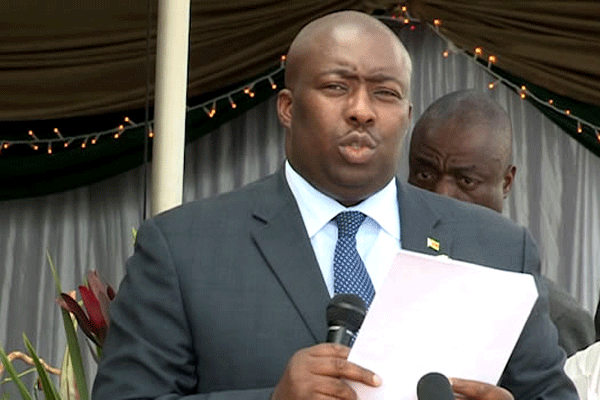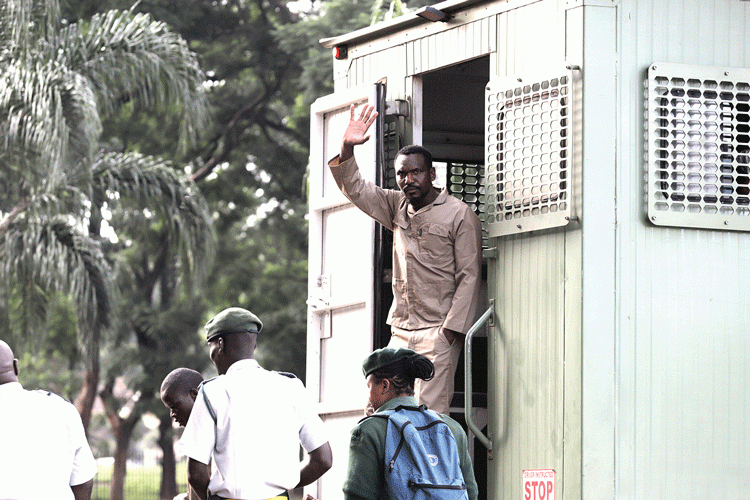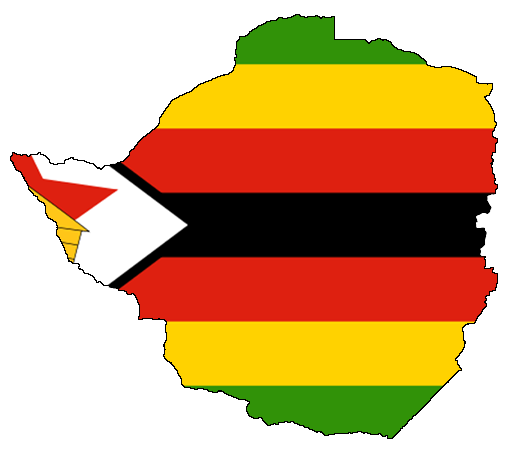
LOCAL governance is a crucial facet and tier of governance in any country and, as such, sufficient investment has to be made into this level to ensure sustainable development, sound service delivery and accountable governance underpinned by active citizen participation in decision-making processes.
guest column: Dumisani Nkomo
This instalment is by no means exhaustive, but rather seeks to make a cursory analysis of some challenges in local governance in Zimbabwe.
Why local governance is important
Local governance is that level of governance that is closest to the people, as it relates to structures, institutions and processes of local government, which happen at a local level within the geographical vicinity of residents.
In theory, citizens are, thus, able to effectively influence local governance more effectively than national governance because this is a level where their voices can be heard and development processes influenced.
The local elected leader [ideally] is accessible because he or she is domiciled in a ward, which is one of the smallest units of governance. However, admittedly, there are a number of challenges that need to be addressed if Zimbabwe is to enjoy a robust local governance framework epitomised by citizen participation, responsive local institutions, good service delivery, accountability and transparency.
Challenges
- Chamisa under fire over US$120K donation
- Mavhunga puts DeMbare into Chibuku quarterfinals
- Pension funds bet on Cabora Bassa oilfields
- Councils defy govt fire tender directive
Keep Reading
There are at least eight challenges that need to be addressed in order to ensure that the country has a vibrant local governance architecture.
These include, but are not limited to, overcentralisation, corruption, dual governance structures, narrow revenue bases, politicisation of development structures, securitisation of local governance, questionable calibre of elected leaders and, ultimately, a congenital incapacity to deliver services and facilitate development.
Centralisation
Urban governance continues to suffer the indignity of interference from central government, particularly in issues of budget ratification and appointment of key officials.
There is an urgent need for the country to move towards a devolved system of government envisaged in Chapter 14 of the Constitution.
The government argues on its part that local authorities cannot be given a blank cheque, as this can lead to corruption and inefficiency, as evidenced in local authorities in Harare and Chitungwiza.
They argue that Zimbabwe is too small for governmental authority to be devolved to local authorities and provincial governments.
I would like to argue that relatively small countries such as Swaziland, with a population of 1,5 million, have a commendable devolved system of governance.
While I am opposed to the dictatorial tendencies of the monarchy, Swaziland has a commendable Tinkundla system of governance, in which five regions enjoy sufficient devolved powers.
Regions such as Shiselweni, which is one of the poorest in Swaziland, have, thus, managed to develop incredibly in the past 10 years due to this form of devolution.
The power of the minister of local government and that of his peer in rural affairs have to be curtailed in order to facilitate decentralisation of administration duties and devolution of power in decision-making.
A framework that gives local authorities more teeth has to be developed to this end.
Narrow revenue bases
Most local authorities, both rural and urban, have very narrow revenue bases resulting in limited budgets, which culminate in poor service delivery.
Bulawayo’s 2017 budget, for example, is about $105,5 million. English Premier League football club Manchester United paid about $120 million to sign French international Paul Pogba, which means the budget for the entire city is less than what a football club spent on one player.
Local authorities have over-relied on rates and levies charged on residents for years, but in a country where the bulk of the populace in unemployed, this has seen the authorities at loggerheads with residents.
In urban areas, this has resulted in water disconnections for defaulting residents and, in some cases, attachment of property, which has affected vulnerable sections of the community.
Local authorities have to broaden their revenue bases by creating a framework for sustainable local economic development (LED).
Most local authorities own buildings, land and other assets, which can be leveraged to facilitate opening up of alternative revenue streams.
In rural areas, there are unique challenges, which pertain to local governance, which include issues of dual governance structures, securitisation of local governance, dysfunctional governance structures and politicisation of traditional structures.
Dual governance structures
At district level, rural district councils are headed by chief executive officers (CEOs), who are appointed by the councils, while there also district administrators.
District administrators (DAs), who were inherited from the colonial governance system to preside over the affairs of natives, remain a subject of contention, as there are numerous clashes between DAs and CEOs.
Most of the time, the respective personalities play a moderating role in minimising or maximising conflicts due to an apparent dualisation of power.
The DA presides over the district development committee, co-ordinates activities of various line ministries, and supervises/works with traditional leaders, while the CEO heads the local authority’s secretariat.
These two offices overlap and, thus, there is need to resolve this anomaly.
One solution is to totally scrap the office of the DA.
As a country, we do not have the resources to maintain a bloated wage bill.
In a normal country, the security forces and/or intelligence apparatus have no role whatsoever in development processes.
Actually, the Constitution states that their primary role is to defend the territorial integrity and sovereignty of the country.
As such, they have no business in issues of dip tanks, sewers and rates for tuck shops.
However, in Zimbabwe, the heads of the police, army, intelligence and prisons at district level have and are part of the local governance infrastructure.
This is a clear impediment on development and a manifest diversion from their key functions of keeping the country safe from insurgents.
Dysfunctional development structures
Zimbabwe has a brilliant development framework for rural development, but, unfortunately, the frame does not work.
Development, as envisaged by the Traditional Leaders Act and the Rural District Councils Act, begins at village level through village development committees (Vidcos), which are supposed to develop village plans.
These plans then cascade upwards to ward development committees chaired by councillors and then the ward assembly chaired by a headman or headwoman.
Unfortunately, most of these development structures are dysfunctional and fail to develop village and ward plans. Subsequently, top-down decision-making prevails.
There is need to depoliticise these structures and to enhance their planning capacities so that they can deliver their mandate of facilitating development.
Vidcos are not and should not be the commissariat of political parties, but the development arms of localities.
Other problems, such as conflicting roles of traditional and elected leaders and the size of wards, are also issues that affect local governance and service delivery.
Corruption, misplaced priorities, poor quality of councillors and an inadequate policy and legislative framework are issues I will cover in other instalments.
Dumisani Nkomo is an activist, social entrepreneur and chief executive officer of Habakkuk Trust. He writes in his personal capacity.











